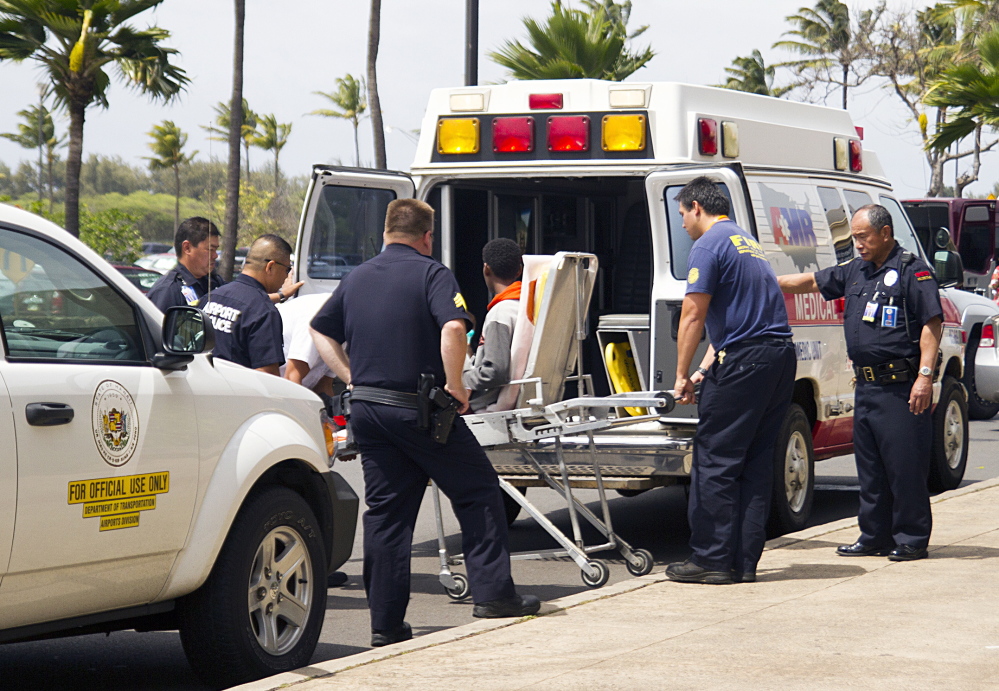SAN JOSE, Calif. — He was young, displaced and frustrated, and he wanted nothing more than to reunite with his mother in their native Africa.
The 15-year-old Somali boy had been arguing at home, and in the kind of impulsive move that teenagers make, he hopped a fence at San Jose International Airport on Easter Sunday and clambered into a wheel well of a Hawaii-bound jetliner.
He survived the trip, and he has not spoken publicly about the ordeal. But his desperation and frustration – borne from a life in a new country and new culture, all of it without his mother – is becoming apparent through interviews with friends, family and law enforcement agents.
The boy is “struggling adjusting to life in this country,” his father, Abdulahi Yusuf, said in a statement issued Sunday through the Council on American-Islamic Relations’ San Francisco Bay Area chapter.
“Our situation was aggravated by our displacement in Africa for many years after fleeing our home country of Somalia because of war conditions. As a result, my son was not able to receive any formal education before we immigrated to the United States,” the statement said.
The father said he plans to fly to Hawaii soon to reunite with his son and is “excited to bring him back home to his family in California.” He said the family was “deeply concerned” when the boy went missing and was relieved to hear he was safe.
The struggles faced by immigrant children were echoed by Talha Nooh from the Muslim Community Association, where the family were members.
“…these young teens are coming from a country torn by a civil war with no basic education and suddenly put in these high schools or elementary schools where they have a cultural shock,” Nooh said.
“This whole thing should be looked at in the context of a teen who is emotionally attached to his mom and grandparents,” Nooh said.
“The father is working 24 hours a day to take care of family here and other family members in the horn of Africa.”
For decades, Somalia, where the family is from, has been plagued with internal conflict, drought and violence.
A United Nations official told The Associated Press that the boy’s mother, 33, lives at the Sheder Refugee Camp in Ethiopia, which houses about 10,200 displaced Somalis.
Speaking with Voice of America radio from a refugee camp in eastern Ethiopia, the teen’s mother, Ubah Mohamed Abdullahi, said her son had recently learned that she was alive after being told by his father she had died.
But community members said the parents had gone through a difficult divorce and that there are differing versions of what their children were told.
The family is working with the Council on American-Islamic Relations to help communicate with medical providers, law enforcement, social workers and the media.
Send questions/comments to the editors.



Success. Please wait for the page to reload. If the page does not reload within 5 seconds, please refresh the page.
Enter your email and password to access comments.
Hi, to comment on stories you must . This profile is in addition to your subscription and website login.
Already have a commenting profile? .
Invalid username/password.
Please check your email to confirm and complete your registration.
Only subscribers are eligible to post comments. Please subscribe or login first for digital access. Here’s why.
Use the form below to reset your password. When you've submitted your account email, we will send an email with a reset code.